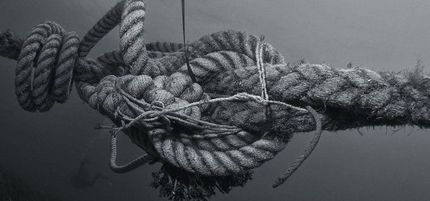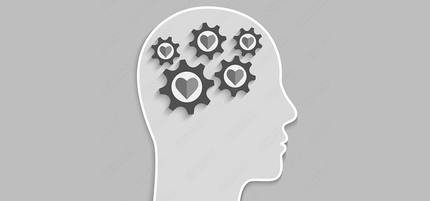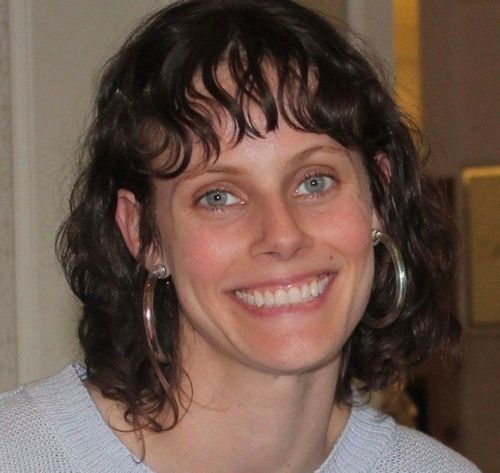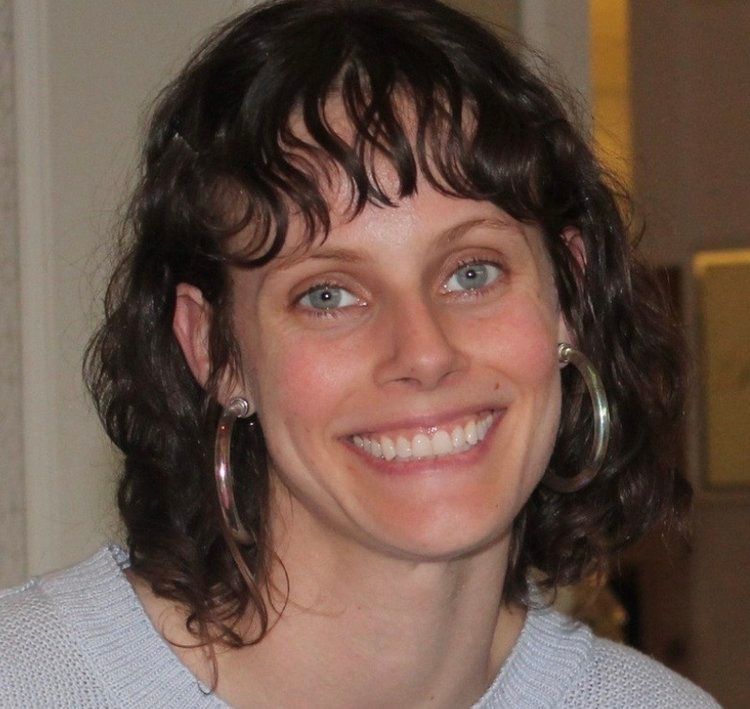
Our Mission
Red Circle Project’s mission is to break cycles of abuse for survivors through education.
Our symbol explained:
The red circle represents the continuous cycles of abuse that survivors commonly experience after their first encounter that they survive. The plumb line cutting through it represents our cycles being interrupted through the pursuit of knowledge, honesty and inner accountability.
About Me
Hi, I'm Francisco Miller.
"We rejoice in our sufferings, knowing that suffering produces endurance, and endurance produces character, and character produces hope, and hope does not put us to shame."
Romans 5: 3-5
About Me
Hi, I'm Francisco Miller.
"We rejoice in our sufferings, knowing that suffering produces endurance, and endurance produces character, and character produces hope, and hope does not put us to shame."
Romans 5: 3-5
"We rejoice in our sufferings, knowing that suffering produces endurance, and endurance produces character, and character produces hope, and hope does not put us to shame."
Romans 5: 3-5

Our Mission
Red Circle Project’s mission is to break cycles of abuse for survivors through education.
Our symbol explained:
The red circle represents the continuous cycles of abuse that survivors commonly experience after their first encounter that they survive. The plumb line cutting through it represents our cycles being interrupted through the pursuit of knowledge, honesty and inner accountability.
What We Teach

Understanding Vulnerability
In the world today, adults and children alike are not education on the characteristics of a vulnerable person and the indicators someone might give off that allows predators to know that they are one.
Do you know your indicators? Do you think you are a vulnerable person?

Understanding Intimacy
The definition of intimacy today is being slowly changed to reflect damaging emotional habits that strip people of feelings of independence or safe approaches to getting to know the people around them. Oftentimes, we are left feeling exploited and discarded in the wake of our attempts at giving away too much, too quickly, and for survivors of abuse, this pattern of approaching intimacy unsafely can be a life-long habit; if not corrected.
What is your definition of intimacy? Where does your definition of intimacy come from? Do you feel that you are approaching your relationships in a way that is safe for yourself long-term?

Understanding Exploitation
The process of grooming and exploitation oftentimes creates life-long habits that people are unaware of, but upon being informed, can increase a person’s ability to defend themselves properly. Education and insight into the patterns of a predator’s tactics used to brainwash & groom can help both adults and children protect themselves from a psychological harm that is beginning to surround us everywhere.
What We Teach
-
Understanding Vulnerability
In the world today, adults and children alike are not education on the characteristics of a vulnerable person and the indicators someone might give off that allows predators to know that they are one.
Do you know your indicators?
Do you think you are a vulnerable person?
-
Understanding Intimacy
The definition of intimacy today is being slowly changed to reflect damaging emotional habits that strip people of feelings of independence or safe approaches to getting to know the people around them. Oftentimes, we are left feeling exploited & discarded in the wake of our attempts at giving away too much, too quickly, and for survivors of abuse, this pattern of approaching intimacy unsafely can be a life-long habit; if not corrected.
What is your definition of intimacy? Where does your definition of intimacy come from? Do you feel that you are approaching your relationships in a way that is safe for yourself long-term?
-
Understanding Exploitation
The process of grooming and exploitation oftentimes creates life-long habits that people are unaware of, but upon being informed, can increase a person’s ability to defend themselves properly. Education and insight into the patterns of a predator’s tactics used to brainwash & groom can help both adults and children protect themselves from a psychological harm that is beginning to surround us everywhere.
Ehren's Story

Ehren Dorsey is a sexual assault survivor from Saint Charles, Missouri who has with a passion and singular focus for educating the public about the long-term affects of grooming and abuse, to help both adults and children learn how to protect themselves from predators and manipulation.
Ehren first met a predator online almost 20 years ago, when she was 13, through a free trial for a chat room on her flip phone. She was groomed with porn, which desensitized her to many elements of rape and also indoctrinated her into many ways of behaving that continued to leave her open to more abuse for almost a decade afterwards.
Ehren is passionate about educating individuals on the long-term affects of grooming and physiological abuse, as well as the behavioral tells of predators that she does not feel is discussed enough in the public sphere.
Erin currently testifies on behalf of the PYMOA Bill, a bill which would protect children from accidental online exposure to porn. Erin also work in partnership with the Stop Trafficking Project, where her testimony is used in presentations at schools to help protect children from online trafficking.
Ehren's Story

Ehren Dorsey is a sexual assault survivor from Saint Charles, Missouri who has with a passion and singular focus for educating the public about the long-term affects of grooming and abuse, to help both adults and children learn how to protect themselves from predators and manipulation.
Ehren first met a predator online almost 20 years ago, when she was 13, through a free trial for a chat room on her flip phone. She was groomed with porn, which desensitized her to many elements of rape and also indoctrinated her into many ways of behaving that continued to leave her open to more abuse for almost a decade afterwards.
Ehren is passionate about educating individuals on the long-term affects of grooming and physiological abuse, as well as the behavioral tells of predators that she does not feel is discussed enough in the public sphere.
Erin currently testifies on behalf of the PYMOA Bill, a bill which would protect children from accidental online exposure to porn. Erin also work in partnership with the Stop Trafficking Project, where her testimony is used in presentations at schools to help protect children from online trafficking.
-
Ehren's Story
Ehren Dorsey is a sexual assault survivor from Saint Charles, Missouri who has with a passion and singular focus for educating the public about the long-term affects of grooming and abuse, to help both adults and children learn how to protect themselves from predators and manipulation.
Ehren first met a predator online almost 20 years ago, when she was 13, through a free trial for a chat room on her flip phone. She was groomed with porn, which desensitized her to many elements of rape and also indoctrinated her into many ways of behaving that continued to leave her open to more abuse for almost a decade afterwards.
Ehren is passionate about educating individuals on the long-term affects of grooming and physiological abuse, as well as the behavioral tells of predators that she does not feel is discussed enough in the public sphere.
Erin currently testifies on behalf of the PYMOA Bill, a bill which would protect children from accidental online exposure to porn. Erin also work in partnership with the Stop Trafficking Project, where her testimony is used in presentations at schools to help protect children from online trafficking.
FAQs
Got a question? We’re here to help.
-
What state do you reside in?
I currently reside in Missouri.
-
Are you a trafficking survivor?
I am not a survivor of trafficking. Human trafficking is defined as … I am is a survivor of online grooming, sexual assault and continual cycles of abuse for almost a decade of my life.
-
I am interested in having you on my podcast, social media channel, or program for an interview. How do I get in contact with you?
Fill out the ‘Contact Us’ form located on the home page, and someone will be in contact with you, or you can email redcircleproject@proton.me directly.
-
Can I fill out the form on your website and ask you questions even if I’m not with a business or organization?
Yes. The main goal of Red Circle Project is to build relationships and have educational conversations with individual, fellow survivors— more than organizations— who could then take what they have learned back into their own communities and help create healing and encouragement for the other survivors that they meet, as well.
For cycles of abuse to end in our communities, it starts with us and us loving our neighbors, even while they are broken and possibly addicted to abuse. I believe in becoming healthier in order to turn around and help the people behind me, hoping that they might do the same thing for the people behind them. Together, we can create change!
-
You talk a lot about grooming and coercion tactics. Can I be groomed as an adult?
Just as trafficking can have misnomers and misconceptions around it, grooming is understood in a very limited way by the general public, as well. Many people believe that grooming can only happen to children, and that grooming is only done for sexual purposes. I challenge that I have been groomed many times in my life, oftentimes as an adult, and the misbelief that I was safe from psychological grooming left me more vulnerable to being conned as an adult.
I would define grooming as the ‘priming’ of the mind for exploitation or abuse. How do you prime the mind? You case the person in order to profile them according to their needs and vulnerabilities.
How do you case and profile someone’s vulnerabilities? According to their behavioral tells and indicators, which people give off through how they dress, talk and what they admit about themselves to strangers.
The act of storytelling, gifts and con-artistry are the common tools used to normalize an individual to concepts or beliefs that work to their detriment, for purposes of entrapment and / or exploitation.
Under this definition, many adults can also be groomed into believing things that lead to the harm of themselves or others. It is very important to examine the stories being offered to us by strangers.
-
What common resources do you recommend for abuse survivors?
Education on sex addiction is very healing for individuals who have been abused through the continual exploitation of their body by strangers, loved ones or romantic partners, and normalized to psychological abuse and the breaking down of themselves and their own needs through abusive sexual demands within romantic relationships or trafficking situations. To fully understand many of our abusers, sex addiction is something not commonly addressed or explained within most literature on abuse—yet is an integral piece of our abuse that is becoming slowly normalized within society.
Education on enmeshment can also provide insight into how the long-term loss of our own identity, as we continually sacrifice our identity and beliefs for our abuser, affects us after the abuse is over and we are left alone with ourselves, essentially as a hallow shell. Education on enmeshment can also provide tools for how to regrow your own identity, as well as learning how to connect with people in a health way that does not involve discarding yourself or accidentally re-creating enmeshment with others over and over again. Without a knowledge of what we personally desire and enjoy on our own, oftentimes the emptiness we feel inside can lead us back to our addictions, instead.
Joining a sobriety group, even if it is technically for substances, to address your potential addiction to abuse and the highs and lows which are very similar to substance abuse, as well, can create a sense of community for the survivor who might be attempting to rewire their own brain and not relapse on their “drug” – which is typically a person who can create those highs and lows for us. In my own journey, I have never successfully recovered solely on my own. It required the help of other, trust-worthy people, and God.
-
I have naked photos of myself that have been posted online and I wish they could be removed.
You are not alone. First and foremost, please understand that while people have seen our bodies, our worth is not defined by this experience, and you are not worthless or left with less value because people have seen parts of your body that you wish they had not. They can touch or view our bodies, but they cannot take our worth. Eleanor Roosevelt said, “No one can make you feel inferior without your consent”. Don’t let these people take away your belief in yourself.
“Take It Down” is a free service that helps minors nudes, partial nudes and / or sexually explicit images or videos from unencrypted online platforms. If your material is unencrypted, here is a resource that you should use.
https://takeitdown.ncmec.org
“Stop Non-Consensual Intimate Images” is a foundation that uses technology to create digital fingerprints, called “hashes” on any images that you upload to them, and then works with participating companies to look for image matches which have been posted on websites and have them removed. Visit their website to create a case file today.
https://stopncii.org
-
Do you have any resources you recommend for more education on Online Domestic Minor Sex Trafficking— the name for online human trafficking that is protected by US law?
The Internet Watch Foundation is a non-for-profit based in the UK that works with global law enforcement agencies and the internet tech industry to assist in removing child sexual abuse material off the internet. They issue annual reports that provide statistics on the amount of child sexual abuse material that is generated online annually and the common age ranges they are seeing. The statistics shown can be a very eye-opening for people who might believe that the online trafficking of children is not as prevalent as it is.
https://www.iwf.org.uk
For a quick summarizing video that can be shown to family or friends for further education, please find a link for a Stop Trafficking Project video provided below:
https://vimeo.com/847360006
-
How long did it take you to fully recover?
I think there is a common misconception that survivors of abuse, who often times have PTSD as much as war veterans, are able to 100% become the person that they were before the abuse or reach a state of perfect recovery with no lasting effects leftover. While it may be discouraging or disheartening to hear, for me personally, I do not consider the goal for myself to be “becoming fully recovered”, as my mind has been permanently rewired in many ways from the constant forms of abuse that I have encountered since I was 13 years old.
I also think that people sometimes ask me this question because what they are searching for is a success story that they can pass along to themselves, or others, for encouragement.
What I find most encouraging about my own story is the amount of love that I have been shown in the midst of my brokenness and flaws, as a survivor who has been left with many large behavioral dysfunctions to overcome. No one was required to show me love in those moments of failing the people around me, and perhaps disappointing my family and friends with relapses in unhealthy behavior, and yet so many people have shown me grace, kindness, forgiveness, and acceptance in the midst of my failures, as I try to become better every single day.
I’ve found that other people’s love has rewired my brain, and given me real life examples that I can look to as an inspiration for myself, far more than any therapy session ever could. I’m not sure if I will ever be “fully recovered”, but I work very hard on showing this kind of love to myself and others, today, regardless of that fact.
FAQs
Got a question? We’re here to help.
-
What state do you reside in?
I currently reside in Missouri.
-
Are you a trafficking survivor?
I am not a survivor of trafficking. Human trafficking is defined as … I am is a survivor of online grooming, sexual assault and continual cycles of abuse for almost a decade of my life.
-
I am interested in having you on my podcast, social media channel, or program for an interview. How do I get in contact with you?
Fill out the ‘Contact Us’ form located on the home page, and someone will be in contact with you, or you can email redcircleproject@proton.me directly.
-
Can I +ll out the form on your website and ask you quesons even if I’m not with a business or organization?
Yes. The main goal of Red Circle Project is to build relationships and have educational conversations with individual, fellow survivors— more than organizations— who could then take what they have learned back into their own communities and help create healing and encouragement for the other survivors that they meet, as well.
For cycles of abuse to end in our communities, it starts with us and us loving our neighbors, even while they are broken and possibly addicted to abuse. I believe in becoming healthier in order to turn around and help the people behind me, hoping that they might do the same thing for the people behind them. Together, we can create change!
-
You talk a lot about grooming and coercion tactics. Can I be groomed as an adult?
Just as trafficking can have misnomers and misconceptions around it, grooming is understood in a very limited way by the general public, as well. Many people believe that grooming can only happen to children, and that grooming is only done for sexual purposes. I challenge that I have been groomed many times in my life, oftentimes as an adult, and the misbelief that I was safe from psychological grooming left me more vulnerable to being conned as an adult.
I would define grooming as the ‘priming’ of the mind for exploitation or abuse. How do you prime the mind? You case the person in order to profile them according to their needs and vulnerabilities.
How do you case and profile someone’s vulnerabilities? According to their behavioral tells and indicators, which people give off through how they dress, talk and what they admit about themselves to strangers.
The act of storytelling, gifts and con-artistry are the common tools used to normalize an individual to concepts or beliefs that work to their detriment, for purposes of entrapment and / or exploitation.
Under this definition, many adults can also be groomed into believing things that lead to the harm of themselves or others. It is very important to examine the stories being offered to us by strangers.
-
What common resources do you recommend for abuse survivors?
Education on sex addiction is very healing for individuals who have been abused through the continual exploitation of their body by strangers, loved ones or romantic partners, and normalized to psychological abuse and the breaking down of themselves and their own needs through abusive sexual demands within romantic relationships or trafficking situations. To fully understand many of our abusers, sex addiction is something not commonly addressed or explained within most literature on abuse—yet is in integral piece of our abuse that is becoming slowly normalized within society.
Education on enmeshment can also provide insight into how the long-term loss of our own identity, as we continually sacrifice our identity and beliefs for our abuser, affects us after the abuse is over and we are left alone with ourselves, essentially as a hallow shell. Education on enmeshment can also provide tools for how to regrow your own identity, as well as learning how to connect with people in a health way that does not involve discarding yourself or accidentally re-creating enmeshment with others over and over again. Without a knowledge of what we personally desire and enjoy on our own, oftentimes the emptiness we feel inside can lead us back to our addictions, instead.
Joining a sobriety group, even if it is technically for substances, to address your potential addiction to abuse and the highs and lows which are very similar to substance abuse, as well, can create a sense of community for the survivor who might be attempting to rewire their own brain and not relapse on their “drug” – which is typically a person who can create those highs and lows for us. In my own journey, I have never successfully recovered solely on my own. It required the help of other, trust-worthy people, and God.
-
I have naked photos of myself that have been posted online and I wish they could be removed.
You are not alone. First and foremost, please understand that while people have seen our bodies, our worth is not defined by this experience, and you are not worthless or left with less value because people have seen parts of your body that you wish they had not. They can touch or view our bodies, but they cannot take our worth. Eleanor Roosevelt said, “No one can make you feel inferior without your consent”. Don’t let these people take away your belief in yourself.
“Take It Down” is a free service that helps minors nudes, partial nudes and / or sexually explicit images or videos from unencrypted online platforms. If your material is unencrypted, here is a resource that you should use.
https://takeitdown.ncmec.org
“Stop Non-Consensual Intimate Images” is a foundation that uses technology to create digital fingerprints, called “hashes” on any images that you upload to them, and then works with participating companies to look for image matches which have been posted on websites and have them removed. Visit their website to create a case file today.
https://stopncii.org
-
Do you have any resources you recommend for more education on Online Domestic Minor Sex Trafficking— the name for online human trafficking that is protected by US law?
The Internet Watch Foundation is a non-for-profit based in the UK that works with global law enforcement agencies and the internet tech industry to assist in removing child sexual abuse material off the internet. They issue annual reports that provide statistics on the amount of child sexual abuse material that is generated online annually and the common age ranges they are seeing. The statistics shown can be a very eye-opening for people who might believe that the online trafficking of children is not as prevalent as it is.
https://www.iwf.org.uk
For a quick summarizing video that can be shown to family or friends for further education, please find a link for a Stop Trafficking Project video provided below:
https://vimeo.com/847360006
-
How long did it take you to fully recover?
I think there is a common misconception that survivors of abuse, who often times have PTSD as much as war veterans, are able to 100% become the person that they were before the abuse or reach a state of perfect recovery with no lasting effects leftover. While it may be discouraging or disheartening to hear, for me personally, I do not consider the goal for myself to be “becoming fully recovered”, as my mind has been permanently rewired in many ways from the constant forms of abuse that I have encountered since I was 13 years old.
I also think that people sometimes ask me this question because what they are searching for is a success story that they can pass along to themselves, or others, for encouragement.
What I find most encouraging about my own story is the amount of love that I have been shown in the midst of my brokenness and flaws, as a survivor who has been left with many large behavioral dysfunctions to overcome. No one was required to show me love in those moments of failing the people around me, and perhaps disappointing my family and friends with relapses in unhealthy behavior, and yet so many people have shown me grace, kindness, forgiveness, and acceptance in the midst of my failures, as I try to become better every single day.
I’ve found that other people’s love has rewired my brain, and given me real life examples that I can look to as an inspiration for myself, far more than any therapy session ever could. I’m not sure if I will ever be “fully recovered”, but I work very hard on showing this kind of love to myself and others, today, regardless of that fact.
Contact Us
Questions, comments or requests?
Reach out!
Contact Us
We will get back to you as soon as possible
Please try again later


